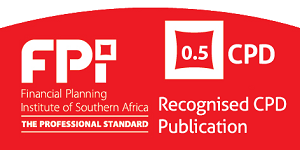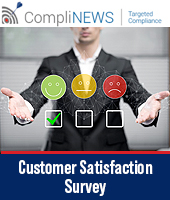What does 'Business Ethics' mean?
Publish date: 02 April 2020
Issue Number: 19
Diary: CompliNEWS Ethics
Category: Ethics
By Michael Volkov, the Volkov Group
Forgive me for the title of this posting – I am trying to make a point; a rather obvious one. I confess I did not take philosophy classes in high school or college. So, I may have missed the boat on this issue. But from my limited vantage point with respect to the compliance industry, everyone needs to take a breath and reevaluate their use and understanding of the term 'business ethics.'
As a start to this effort, let me first tell you what ethics in relation to compliance does not mean – we are not talking about some metaphysical, undefined concept surrounding human existence. Also, and perhaps more relevant, we are not speaking about legal ethics, a term that has little to no relevance to corporate or business ethics except for perhaps one minor issue (duty to act in circumstances where lawyer has knowledge of future illegal actions, e.g. a client who tells his/her lawyer that he/she intends to commit a violent crime). Legal ethics has very little relevance for business ethics.
Without belaboring all the feel good and esoteric discussion surrounding societal ethics and applying these concepts to business ethics, I would suggest that we focus on the term 'business ethics' by focusing on the concept of ethical decision-making. Companies act every day and make important decisions. In certain circumstances involving difficult decisions, a business ethics framework can be helpful to ensuring that a company considers its mission, its values and relevant stakeholders.
To do so, a company has to answer several important questions:
What is the company’s mission?
A company has to define its mission in a clear and concise manner. Hopefully, the company will define its mission beyond just making money, building good products, and selling lots of goods and services. By mission, I mean defining the company’s mission in relation to people, communities and society. A company is only as good as it relates to important constituencies – e.g. customers, community, government, shareholders. I think of it as a company’s inspiration – what motivates the company and its actors?
What are the company’s values?
A company’s values are an important statement of its organizational and operational principles. Hopefully, the company’s statement of values is short, sweet and simple. A company’s values has to reflect again it mission and the means by which the company plans to accomplish its mission.
Who are the company’s stakeholders?
A company operates in its community, relates to its shareholders, customers, vendors and suppliers and has important interactions with government entities. An important aspect of ethical business decision-making is to understand your stakeholders, their interests and concerns, and nurturing the company’s relationships with these stakeholders.
Does the company have an established framework for ethical business decisions?
Once you have defined the company’s mission, its values and its stakeholders, the company should define a framework for ethical business decisions. It is here where designs can get tripped up – by ethical business decisions, I do not mean what is right or wrong from a political or social perspective. I am focusing on balancing important interests to a company’s stakeholders. Social and political issues, however, may be taken into account depending on concerns from stakeholders like the government, shareholders, the community in which the company operates, and customers. It can be a factor but rarely will be the driving force for most companies.
Instead, let me offer a framework for ethical business decisions. As you will see, this framework goes beyond just asking whether a decision is 'legal' to defining whether a decision is 'right.'
What are the relevant facts around the issue?
Of course, to make an important decision, a company has to know and understand the relevant facts surrounding the issue.
- What the available options?
- Does the issue involve more than whether the decision is legal?
- Does the issue implicate any code of conduct provisions?
- Assuming the decision does not violate the law or code of conduct, what relevant issues are raised?
- What impact will the decision have on each relevant stakeholder?
- What are the benefits and negative impacts to the company and its stakeholders (cost-benefit analysis)? In other words, do the benefits outweigh the negative impact to stakeholder(s)?
- Which option is most consistent with the company’s mission and values?
If the decision is reported in the press, how would stakeholders respond?
While this is not an exhaustive list or the definitive list, my hope is that it will help identify some relevant considerations. This framework is intended to integrate a decision-making process that weighs a company’s mission, values, code of conduct, stakeholders and legal considerations (if any).





